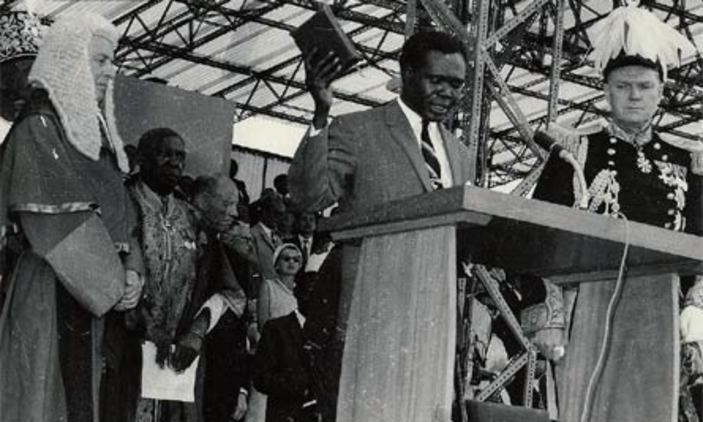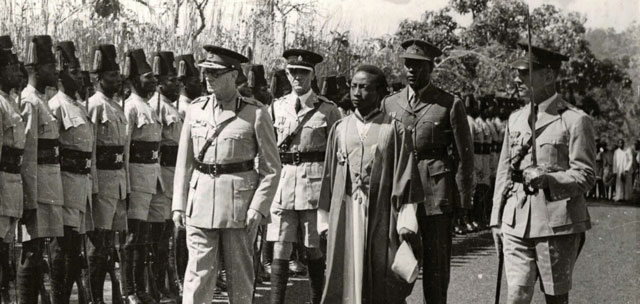UGANDA AT 60
Uganda gained her independence on October 9th 1962. Since 1894 she was a British protectorate that was put together from some very organized kingdoms and chieftaincies that inhabited the lake regions of central Africa.

At independence, Dr. Milton Apollo Obote, also leader of the Uganda People’s Congress (UPC) became the first Prime Minister and head of the government.
The Republican leaning UPC came into power through an “unholy” alliance with a pro-mornarchy party called the Kabaka Yekka (KY), which had a stated aim of protecting the institution and power of the kingdom of Buganda.
The UPC had earlier on, one year before independence, lost the first ever general election to the Democratic Party(DP) and now needed the strategic partnership of allies to avoid another defeat.

In November 1963, Kabaka Mutesa II King of Buganda was elected ceremonial President of Uganda thus seemingly sealing the political alliance of UPC and KY. However, this marriage of political convenience was short lived since both Obote and Mutesa and their following had differing agendas.
In 1964, Obote championed a bill in Parliament providing for a referendum on the belonging of the counties of Buyaga, Bugangaizi and Buwekula then of Buganda but claimed by the neigbouring kingdom of Bunyoro.
This culminated in two of the counties opting to secede from Buganda and revert back to the Bunyoro Kingdom.
As Kabaka of Buganda and President of Uganda, Sir Edward Mutesa II, was placed in an invidious position of signing the two acts pertaining to the “lost counties”.

It was upon accusations of dereliction of duty by the President, not to mention other fabricated reasons, that Obote suspended the 1962 constitution on 22nd February 1966 and took over all powers of State, thus giving rise to what came to be known as the 1966 Crisis.
On 15 April 1966, in a Parliament surrounded by troops, Obote introduced without notice a new constitution to be voted upon that very day.
It was passed without debate and the Prime Minister informed Members of Parliament (MPs) that they would find their copies in their pigeonholes. This constitution came to be known as the Pigeonhole Constitution.
Amongst other things, the federal constitutional status of kingdoms was abolished and the office of Prime Minister merged with that of the President and all executive powers became vested in Obote. Uganda was declared a Republic.

Thank you for shopping with us. We wish you a happy independence day, and we hope we will keep on working together to get Uganda ahead.


